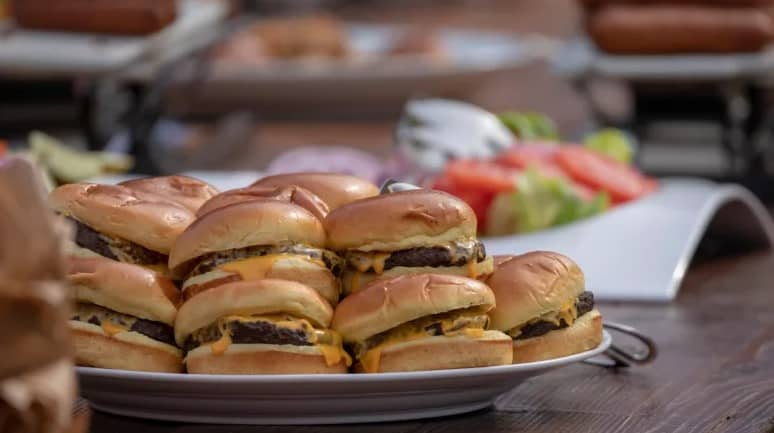
We all need protein, but meat isn’t the only place to find it. People who swap out animal protein for plant-based alternatives often end up eating healthier diets, but there are a few things you need to know before assuming that plant protein is always healthier.
The word “protein” means two different things.
Protein is a macronutrient, a family of molecules made of amino acids. Protein, in this sense, is present in many different food items. Meat has a ton of it. Legumes, like beans, have some. Grains and leafy vegetables have a little.
But colloquially we also use the word protein to refer to the foods that used to be known as the “meat group.” When I order tacos at my favorite restaurant, the server asks what protein I would like in them; I can choose from options like steak, fish, and tofu.
These are very different foods, even apart from the provenance of their amino acids. A 100-gram portion of steak has 21 grams of protein, 19 grams of fat (much of it saturated), and no carbohydrates. The tofu has eight grams of protein, five grams of fat, and two of carbs (including a little bit of fiber). Each provides different vitamins and minerals.
Besides tofu, plant proteins can include veggie burgers and soy-based hot dogs; seitan, which is basically pure wheat gluten; and any legumes, grains, or veggies that provide a high(ish) protein content, like chickpeas, lentils, and nuts.
Either plant-based or animal-based proteins (or both) can have a place in a healthy diet, as long as you remember it’s not an even swap. If you choose the tofu, you need to make sure you’re getting enough protein somewhere else in your diet. If you choose the steak, you may want to watch your fat intake. These foods’ differences go beyond the source of the protein in them.
“Animal protein” often has more fat and more actual protein
A few things that are true of many of the protein-rich foods that come from animals:
- They may have more saturated fatty acids (beef and dairy especially—this is arguably bad).
- They may have more omega-3 fatty acids (fish especially—this is probably good).
- They don’t contain any fiber or carbohydrates.
- They tend to be very high in protein.
If you need a lot of protein in your diet, meat is a great way to get a lot of it very easily. But it comes with downsides, including the fat content of beef and some dairy. Fish contain healthier fats, but have their own issues with sustainability and mercury content.
Red meats and processed meats have also been linked to some types of cancer, but understanding that relationship is a little bit complicated. Bottom line, if you have a serious bacon habit, it might make sense to cut back.
“Plant protein” has less protein, but often comes with fiber
Plant-based protein sources have their own pros and cons as well. The biggest one is that they just don’t have as much protein. You can still get enough protein through a vegetarian or vegan diet, as long as that diet is well balanced, but you may need to use supplements like protein powders if you’re aiming for a high protein diet to support athletic training or certain weight loss strategies.
Some other things that are true of many plant-based protein sources:
- They often contain fiber (especially legumes and whole grains).
- If they contain fat, they are often rich in “good” fats (for example, the omega-3’s in nuts).
- They contain plenty of starch as well, so it’s basically impossible to follow a low-carb diet if that’s a priority for you.
No matter what protein source your diet is built around, it’s not too hard to get all your vitamins and minerals as long as your diet is reasonable well-rounded. The one exception is vitamin B12, which strict vegans need to supplement.
What really matters is your overall diet
If your favorite meat is a cheeseburger and you always pair it with fries and a coke, that’s a shitty diet and you know it. You can swap the beef patty for an Impossible burger and it’s still just as bad a meal, even though you’re now eating “plant protein.”
Instead, look at the entire meal you end up with, and how that affects everything else you eat. I’m an omnivore but I often look to the vegetarian section of menus and cookbooks because those foods give me more vegetables and more variety. The bottom line: the source of your protein doesn’t matter as much as the totality of what you’re putting in your body.